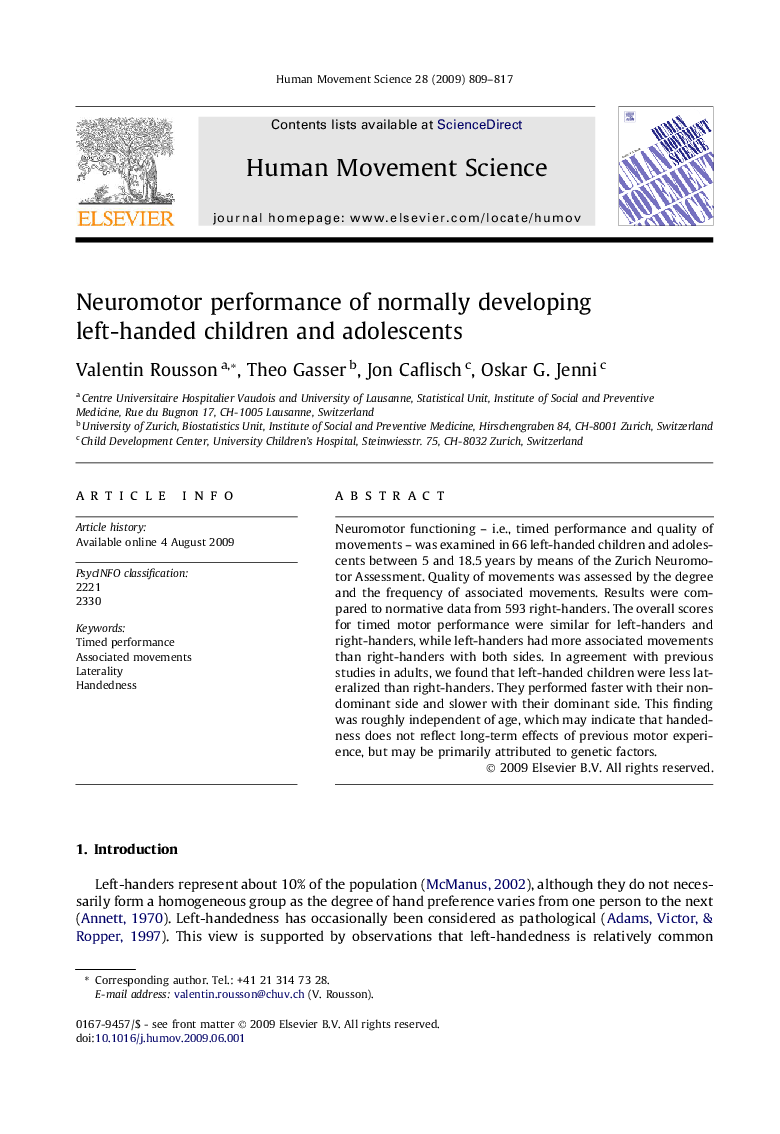| Article ID | Journal | Published Year | Pages | File Type |
|---|---|---|---|---|
| 928760 | Human Movement Science | 2009 | 9 Pages |
Neuromotor functioning – i.e., timed performance and quality of movements – was examined in 66 left-handed children and adolescents between 5 and 18.5 years by means of the Zurich Neuromotor Assessment. Quality of movements was assessed by the degree and the frequency of associated movements. Results were compared to normative data from 593 right-handers. The overall scores for timed motor performance were similar for left-handers and right-handers, while left-handers had more associated movements than right-handers with both sides. In agreement with previous studies in adults, we found that left-handed children were less lateralized than right-handers. They performed faster with their non-dominant side and slower with their dominant side. This finding was roughly independent of age, which may indicate that handedness does not reflect long-term effects of previous motor experience, but may be primarily attributed to genetic factors.
